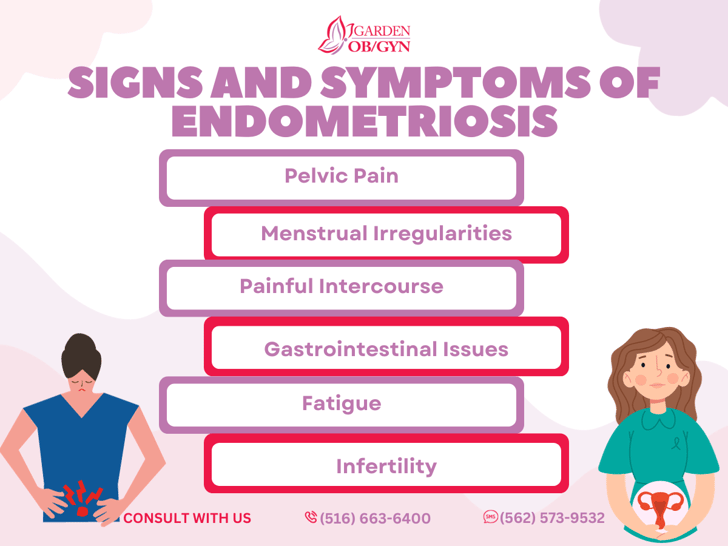Signs and Symptoms of Endometriosis
Endometriosis, where uterine lining grows outside the uterus, affects millions globally, impacting women's lives. Early symptom recognition is vital for diagnosis and management. Let's explore these signs.

Endometriosis is a chronic and often painful medical condition that occurs when tissue similar to the lining of the uterus, called endometrium, grows outside the uterus. This condition affects millions of women worldwide and can have a significant impact on their quality of life. Recognizing the symptoms of endometriosis is crucial for early diagnosis and effective management. In this article, we will explore the common signs and symptoms of endometriosis.
- Pelvic Pain:
One of the hallmark symptoms of endometriosis is pelvic pain, which can vary in intensity. Women with endometriosis often experience chronic pelvic pain that may be dull, aching, or cramping. The pain may become more pronounced during menstruation, sexual intercourse, or bowel movements. The severity of pelvic pain is not necessarily indicative of the extent of the condition, as some women with mild endometriosis may experience severe pain, while others with extensive growths may have minimal discomfort.
- Menstrual Irregularities:
Endometriosis can lead to menstrual irregularities, including heavy or prolonged periods. Some women with endometriosis may also experience irregular cycles, spotting between periods, or changes in menstrual flow. These symptoms can significantly impact a woman's daily life and may contribute to anemia or fatigue.
- Painful Intercourse:
Dyspareunia, or painful intercourse, is another common symptom of endometriosis. The presence of endometrial tissue outside the uterus, especially around the pelvic organs, can cause discomfort or pain during sexual activity. This symptom can have a profound impact on a woman's sexual health and may lead to emotional and psychological challenges.
- Gastrointestinal Issues:
Endometriosis can affect the digestive system, leading to symptoms such as bloating, constipation, diarrhea, or nausea. In severe cases, the condition may cause bowel obstruction or pain during bowel movements. These gastrointestinal symptoms are often more pronounced during menstruation.
- Fatigue:
Chronic pain and the overall impact of endometriosis on a woman's physical and emotional well-being can contribute to persistent fatigue. The constant battle with pain, coupled with potential disruptions in sleep patterns, can leave women with endometriosis feeling exhausted and drained.
- Infertility:
While not all women with endometriosis experience infertility, the condition is a common cause of fertility issues. The presence of endometrial tissue outside the uterus can affect the function of the reproductive organs, leading to difficulties in conceiving. Women struggling with infertility should consider exploring the possibility of endometriosis through medical evaluation.
Recognizing the symptoms of endometriosis is crucial for early diagnosis and appropriate management. If you or someone you know is experiencing pelvic pain, menstrual irregularities, painful intercourse, or any of the mentioned symptoms, it is essential to consult a healthcare professional. Early intervention and treatment can help improve the quality of life for women with endometriosis and mitigate potential complications, including infertility.
































